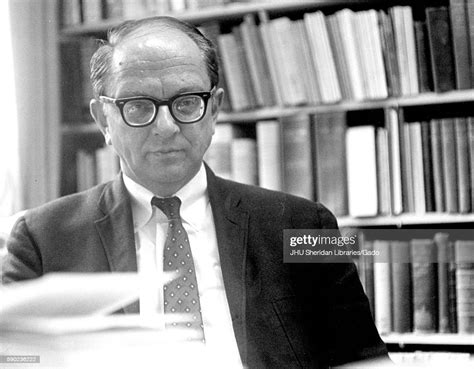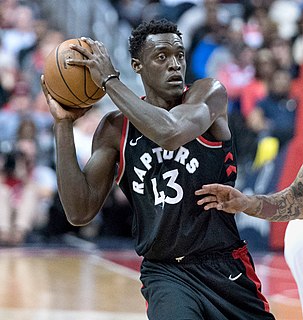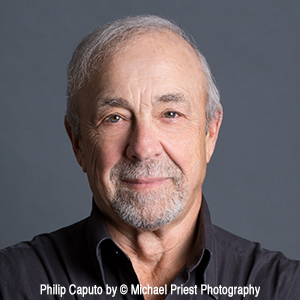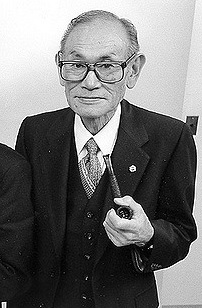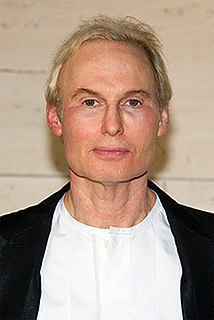A Quote by Keith Johnstone
I see a great lack of stories around. I bought six literary magazines and looked through them to see what people were doing. There wasn't a story in them. They were all about how poetic the feelings of the author were.
Related Quotes
Scoring, that's my thing... Didier Drogba, Samuel Eto'o, those were the guys that we looked at as kids like, 'Man, they're doing it, and they're doing it at a high level.' We would see them on TV. So, it wasn't much about basketball, to be honest, it was just those type of athletes. Those guys were the guys that we looked at as kids.
Being a correspondent at the Vietnam war for me was about exposing myself to danger but it wasn't completely self-serving. I felt that there were these dark places of the earth, were dark things were happening and people should know about them. Call it my moral obligation to go and see them and report them.
Who knew what evil lurked in the hearts of men? A copper, that's who. (...)You saw how close men lived to the beast. You realized that people like Carcer were not mad. They were incredibily sane. They were simply men without a shield. They'd looked at the world and realized that all the rules didn't have to apply to them, not if they didn't want them to. They weren't fooled by all the little stories. They shook hands with the beast.
The story I always recite - and have had to recite so many times over the years to different lawyers and different people within Universal - is that the business end of Mo'Wax was basically, like, 'Give us the big ones samples first, and we'll see how we get on.' And I gave them the six or seven that were, to me, the ones that were the scariest, and the biggest use. It wasn't about the big names, necessarily - although that played into it a bit, with people like Bjork and Metallica.
We were interviewing an author, and we started talking about how so many of them - Salinger, Shaw, Fitzgerald - were really an odd bunch. They put a barrier around themselves, and not many people got through it. This was the spark that I really latched onto - someone who could break through the barrier. Of course [FINDING FORRESTER] really began to take shape when I began to wonder, what if it was a young person?
It used to be, if you were a reporter, you wrote a story and then you moved on to the next one. We were used to people coming to the New York Times. We waited for them to turn on our website or to pick up our print paper and see what we have. We now understand that we have to make our stories available to our readers. A lot of people get their news from Facebook or Twitter and we want to make sure that they see some of our best stories there, too. We do this more aggressively now than we did before.
I never looked at magazines before I started modeling. I was 13 or 14 and none of my friends were into magazines. We were into the fashion of the day, though. Designer jeans were really popular - Sasson, Gloria Vanderbilt, Calvin Klein, Jordache. Once I started modeling, I began to learn about these things, and magazines helped me to understand who was who.
Happiness is not like we were walking around fingering razor blades or anything like that. But it just sort of seems as if - we sort of knew how happy our parents were, and we would compare our lives with our parents and see that, at least on the surface or according to the criteria that the culture lays down for a successful, happy life, we were actually doing better than a lot of them were.
Great stories happen all around you every day. At the time they’re happening, you don’t think of them as stories. You probably don’t think about them at all. You experience them. You enjoy them. You learn from them. You’re inspired by them. They only become stories if someone is wise enough to share them. That’s when a story is born.
There have been times in my adolescence where I gave up. I was like, 'I'm just never going to be pretty. I'm never going to be like one of those people on the front of magazines.' It always seemed really strange to me that the projection of how people are in advertisements looked nothing like the people who were actually buying them. You know what I mean? I never understood that mismatch, and now I really start to see that the people you see in the media are a lot more like people actually are.



